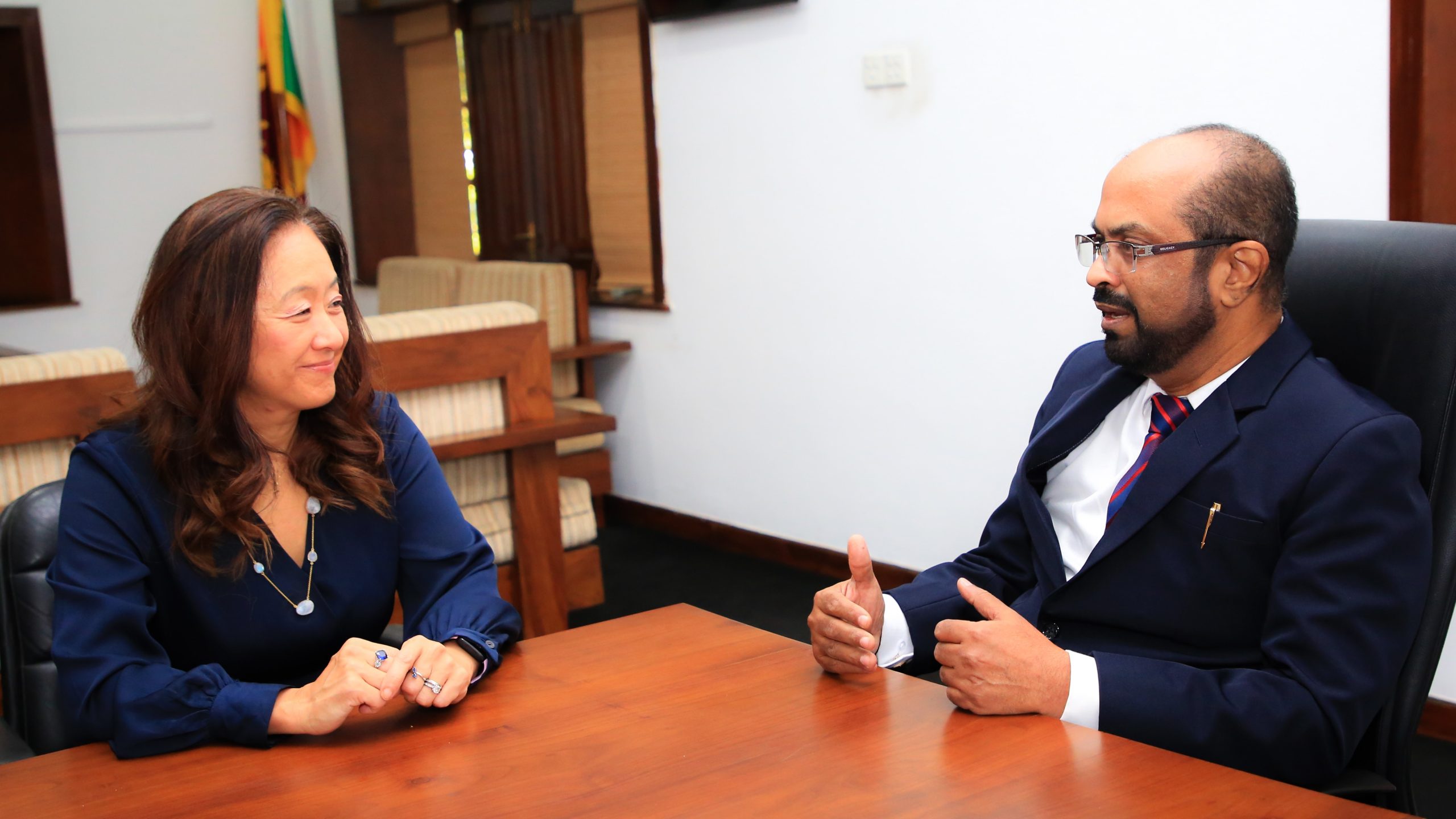Sri Lanka’s new Energy Minister Kumara Jayakody has sought assistance from the United States to develop the renewable energy sector in the island nation, his Ministry said in a statement.
The move comes after President Anura Kumara Dissanayake’s government has promised to review India’s Adani renewable energy deal following some top officials of the Indian company indicted on multiple counts of fraud
Minister Jayakody sought assistance on Monday (09) when he met the U.S. Ambassador Julie Chung to discuss the “ways to enhance cooperation in the power sector between the two countries”.
“The Ambassador said that the U.S. government is also ready to provide technical and other assistance to Sri Lanka’s power sector,” the Energy Ministry said in the statement.
“Minister of Energy Eng. Kumara Jayakodi explained the new government’s energy policy and vision for energy and expressed his expectation of the US government’s support for the renewable energy sector in the country.”
The U.S. has been promoting sustainable energy in Sri Lanka and has backed some projects.
It has assisted with technical assistance to help further develop Sri Lanka’s electric vehicle sector, a $19 million, 5-year Energy Programto support Sri Lanka’s vision to increase the renewable energy generation to 70 percent by 2030. The aim is to support Sri Lanka’s transition into a cleaner energy-generating nation.
The meeting with the top US official came nearly three weeks after the Federal prosecutors in New York indicted the top eight officials of India’s Adani Group, including the Group Chairman Gautam Adani and seven others on multiple counts of fraud.
Adani had proposed setting up 500MW of wind plants in Sri Lanka’s Northern Mannar and Pooneryn. An energy permit was approved by Sri Lanka’s Sustainable Energy Authority for the Pooneryn plant for 234MW as well in February this year.
The new government has promised to review Adani projects amid environmentalists and the Bishop of Mannar have sought legal actions saying that the plants are in the way of a migrant bird route, and that the price paid for power generated by the project is too high.


